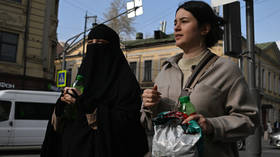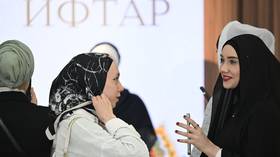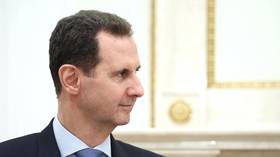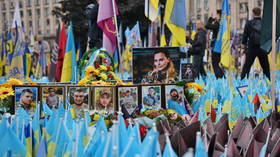Russian Muslim leader speaks out against proposed headdress ban
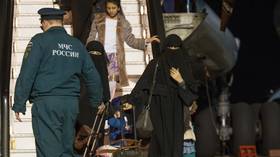
Outlawing Islamic head coverings would violate human rights, cause discontent among Russian Muslims and harm Russia’s diplomatic efforts abroad, Moscow’s chief mufti, Ildar Alyautdinov, has said.
Alyautdinov was speaking to the outlet RBK on Tuesday, commenting on a recent interview in which Russian Human Rights Council head Valery Fadeev argued for a niqab ban as a way to tackle extremism.
“Such attempts would also look like a public violation of secular rights and the Constitution, which guarantees all citizens of Russia the freedom of religion, and therefore the right to religious practices,” the mufti said.
Banning the headdress could cause discontent among Muslims in Russia and lead to new unrest in society, the cleric cautioned. Moreover, he said, it could negatively impact the recent improvement in relations between Russia and countries in the Middle East.
The Council of Ulema of the Russian Muslim community is ready to discuss issues related to the wearing of the niqab with government officials, Alyautdinov said, but is strongly opposed to an outright ban on the garment.
Muslim women are required by their religion to dress modestly. The interpretations of this requirement have led to a range of headdresses, which cover just the hair (hijab), the face (niqab) or the entire body (burqa or chador).
According Alyautdinov, the Ulema does not promote the use of the niqab, believing that in a modern society it is “more proper to follow generally accepted religious rules” and choose clothes that comply with the basic requirements of Islam but “will not provoke a negative attitude among others.”
However, “any infringement on the right to wear a niqab will inevitably be regarded in Muslim countries as unfriendly actions and repression” against Islam, he added.
Fadeev’s comments came almost two months after the deadly terrorist attack at the Crocus City Hall concert venue outside Moscow, in which 145 people died and over 500 were injured. The suspected perpetrators turned out to be nationals of Tajikistan, a majority-Muslim former Soviet republic in Central Asia. The terrorist group Islamic State Khorasan (ISIS-K) claimed responsibility for the attack, though Russian authorities said that Ukrainian intelligence may have been involved as well.
Last year, Uzbekistan banned the wearing of face coverings in public, with exceptions that did not include religious clothing. Kazakhstan has already prohibited the hijab in schools and said it might expand the ban. Meanwhile, Kyrgyzstan has proposed fines for women wearing Islamic niqabs and men with bushy beards.
